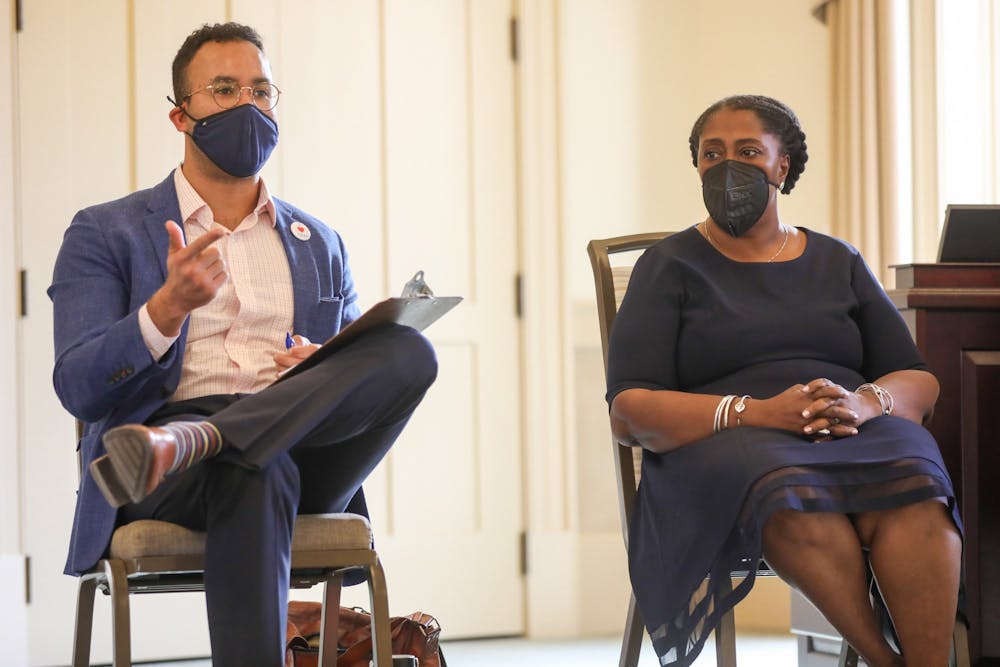She said there is a parallel that exists between America and UNC, specifically with a history of servitude, subjugation and racism.
“This is as old in America as it is at UNC,” Mason-Hogans said. “But as a movement person, I also know that there was resistance from that beginning too, and I don’t think that we delve into that.”
Mason-Hogans said she remembers her mom taking her as a child to Memorial Hall to listen to Ebony Readers/Onyx Theater and see Opeyo! Dance Company, which she later realized were forms of protest.
“The activism looks different during different periods," Mason-Hogans said. "But it was always being used."
Sturkey said he believes there is a gap between who the University says it is and how the University actually approaches issues that impact students, faculty, staff and the local community.
“We can be a nice, quiet, calm institution that teaches people to go out and get jobs ... but that's not who UNC says it is,” Sturkey said. “We say we are a world-class research university. We say that we are the premier place to study the American South.”
Mason-Hogans said she thinks every incoming faculty and student should read the book, “To Drink from the Well: The Struggle for Racial Equality at the Nation's Oldest Public University” to understand local history.
Written by Geeta N. Kapur, a civil rights lawyer and two-time UNC alumna, the book provides a comprehensive look at UNC's history of systemic racism starting from 1776. Kapur worked on the book for over a decade, and it was released in September 2021.
Mason-Hogans said she has always seen an influx of people coming to and taking from Chapel Hill’s community without having an understanding of it.
“We do have to be very careful with the ways that we enter into the community,” Mason-Hogans said. “Because we also have experienced a lot of extraction and quite frankly, a lot of white saviorism that came in with good intentions, but ultimately harmed our community.”
Pamela Lothspeich, director of the New Faculty Program and moderator of the event, said that Sturkey and Mason-Hogans are leaders in the community.
"I know a lot of Black leaders have been asked to do a lot of this work, this kind of emotional and intellectual labor," Lothspeich said. "There's trauma in that."
To get the day's news and headlines in your inbox each morning, sign up for our email newsletters.
Sturkey said he does not find UNC leaders to be that engaged in history. He also said that the University budget does not meet the reality of community needs, nor do budget decisions reflect where someone who is engaged in studying UNC history might move resources.
There are many different disciplines that the history of race in Chapel Hill and on campus could intersect with, Sturkey said.
“It’s about empowering everyone that comes after us,” Sturkey said. “It’s about inspiring people that come after us, it’s about taking the feeling that we all have and putting it forward in a way that allows us to understand how we got here and how we can leave a better place for our own kids.”
@madikirk31
university@dailytarheel.com I elevate@dailytarheel.com



